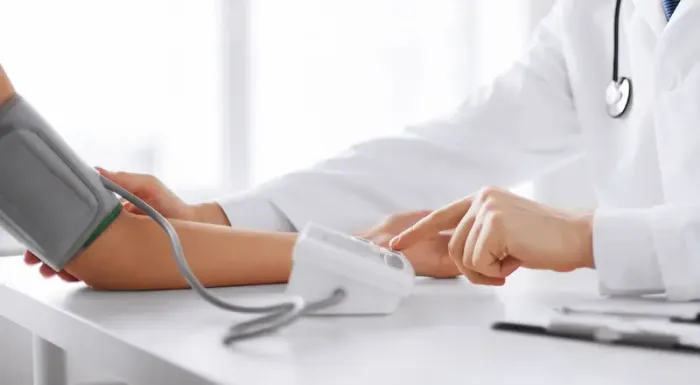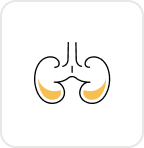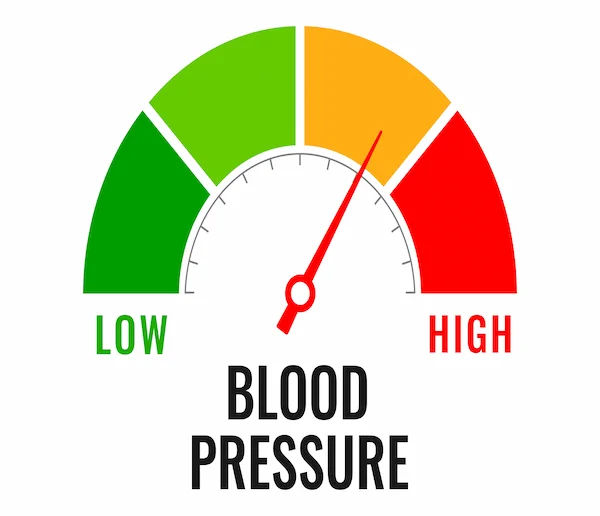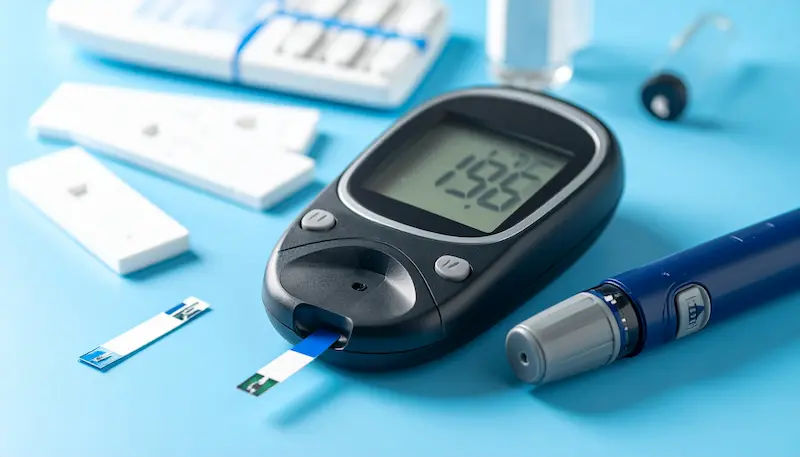Essential Guide to Understanding High Blood Pressure
Learn the essentials of high blood pressure, including causes, symptoms, risks, and effective ways to manage and maintain a healthy heart.


Introduction
High blood pressure, or hypertension, is often called the "silent killer" for a reason. It stealthily affects nearly half of all adults, yet many don't even know they have it. This condition puts extra strain on your heart and blood vessels, significantly increasing your risk for life-threatening events like heart attacks and strokes. But here's the crucial part: high blood pressure is largely manageable and preventable. This comprehensive guide will walk you through everything you need to know from understanding the basic numbers to implementing effective lifestyle changes. We'll demystify the diagnosis process, explore treatment options, and empower you with practical strategies to take control of your cardiovascular health. Whether you're looking to prevent hypertension or manage an existing diagnosis, this article is your first step toward a healthier heart.
What is High Blood Pressure? The Silent Killer Explained
High blood pressure is a chronic medical condition where the force of blood against your artery walls is consistently too high. Think of your arteries as garden hoses. A normal water pressure allows the hose to function efficiently for years. But if the pressure is constantly turned up to the maximum, the hose will stiffen, weaken, and eventually burst. Similarly, sustained high pressure damages your arteries, making them less elastic and restricting blood flow to vital organs.
Systolic vs. Diastolic: Understanding the Numbers
When you get a blood pressure reading, you see two numbers, such as 120/80 mmHg.
• Systolic Pressure (the top number): This measures the pressure in your arteries when your heart beats and pumps blood out.
• Diastolic Pressure (the bottom number): This measures the pressure in your arteries when your heart is at rest between beats.
The unit, mmHg, stands for millimetres of mercury. A normal reading is typically below 120/80. Hypertension is officially diagnosed when readings are consistently at or above 130/80 mmHg.
The Impact of Hypertension on Your Body
When left uncontrolled, the relentless force of high blood pressure can cause severe damage throughout your body. It can lead to:
• Heart Failure: The heart must work harder to pump blood, causing the muscle to thicken and eventually fail.
• Stroke: Weakened arteries in the brain can burst or become blocked.
• Kidney Damage: Kidneys filter waste from the blood; hypertension can damage their delicate filtering units.
• Vision Loss: It can harm the blood vessels in the eyes, a condition known as retinopathy.
Consult a Cardiologist for the best advice
Recognising the Signs: Common and Uncommon Symptoms
One of the most dangerous aspects of hypertension is its frequent lack of obvious symptoms of high blood pressure. Many people live with it for years without a clue.
When Symptoms Are Silent
Most individuals with stage 1 hypertension experience no symptoms at all. This is why regular check-ups are non-negotiable. You cannot rely on how you "feel" to gauge your blood pressure.
Warning Signs of a Hypertensive Crisis
In cases of severely high blood pressure (a hypertensive crisis), symptoms may appear and require immediate medical attention. These can include:
• Severe headaches
• Nosebleeds
• Chest pain
• Difficulty breathing
• Severe anxiety
If you experience any of these, especially in combination with a high reading, seek emergency care.
Root Causes and Risk Factors You Can't Ignore
For most adults, there's no single identifiable cause of high blood pressure. This is known as primary (essential) hypertension, and it tends to develop gradually over many years. A combination of factors is usually at play.
Lifestyle Factors (Diet, Exercise, Stress)
Key contributors include:
• A High-Sodium Diet: Excess salt causes your body to retain fluid, increasing blood pressure.
• Lack of Physical Activity: A sedentary lifestyle leads to higher heart rates and weight gain.
• Chronic Stress: Stress hormones can temporarily elevate your blood pressure.
• Excessive Alcohol and Tobacco Use: Both can damage artery walls and spike blood pressure.
Underlying Health Conditions
Sometimes, high blood pressure is caused by an underlying condition (secondary hypertension). Conditions like kidney disease, thyroid problems, and sleep apnoea can be the root cause.
The Link Between Kidney Disease and Blood Pressure
This is a classic "chicken and egg" scenario. High blood pressure can cause kidney disease, and kidney disease can cause high blood pressure. The kidneys play a key role in regulating blood pressure by controlling fluid balance. When they are damaged, this balance is disrupted, creating a dangerous cycle.
Getting a Diagnosis: Tests and Doctor's Visits
Diagnosing hypertension is straightforward but requires more than a single high reading.
How Blood Pressure is Measured Accurately
A healthcare professional will use a cuff around your arm. For an accurate reading, you should be seated quietly for at least five minutes beforehand and avoid caffeine or exercise 30 minutes prior. They may take multiple readings over several visits or suggest ambulatory blood pressure monitoring, where you wear a device for 24 hours to get a more complete picture.
Additional Tests: From Blood Work to ECG
If hypertension is confirmed, your doctor will likely order tests to check for organ damage and identify causes. These may include:
• Blood Tests: To check cholesterol, blood sugar, and kidney function.
• Urine Tests: Another way to assess kidney health.
• Electrocardiogram (ECG/EKG): This test measures your heart's electrical activity to detect signs of strain.
If your initial readings are consistently high, consult a doctor online with Apollo24|7 for further evaluation and to discuss a diagnostic plan.
Get Your Health Assessed
Effective Treatment Options: Beyond Medication
Managing high blood pressure is a two-pronged approach: lifestyle changes and, if necessary, medication. For many with slightly elevated levels, lifestyle modifications for hypertension can be powerful enough to bring numbers down to a healthy range.
Common Medications and How They Work
If lifestyle changes aren't sufficient, your doctor may prescribe medication. Common types include:
• Diuretics: Often called "water pills," they help your kidneys remove sodium and water, reducing blood volume.
• ACE Inhibitors: These relax blood vessels by blocking the formation of a natural chemical that narrows them.
• Beta-Blockers: These reduce your heart rate and the heart's output of blood, easing the force on your arteries.
It's crucial to take medication exactly as prescribed and not stop without consulting your doctor.
The Power of Lifestyle Modifications
This is the cornerstone of treatment. Adopting a heart-healthy lifestyle can significantly lower your blood pressure. Key strategies include following a DASH-style diet, engaging in regular aerobic exercise, maintaining a healthy weight, and managing stress through techniques like meditation or yoga.
Proactive Prevention: Keeping Your Numbers in Check
The best treatment is always prevention. Even if you have a genetic predisposition, healthy habits can delay or prevent the onset of hypertension.
The DASH Diet: A Blueprint for Heart Health
The Dietary Approaches to Stop Hypertension (DASH) diet is specifically designed to combat high blood pressure. It emphasises:
• Eating fruits, vegetables, and whole grains.
• Including fat-free or low-fat dairy products, fish, poultry, and nuts.
• Limiting foods high in saturated fat, sugar-sweetened beverages, and sweets.
Exercise Regimens for a Healthier Heart
Aim for at least 150 minutes of moderate-intensity aerobic activity (like brisk walking or cycling) per week. Even small amounts of activity can make a big difference.
Living Well with Hypertension: Long-Term Management
A hypertension diagnosis is not a life sentence of ill health; it's a call to action. Successful long-term management involves regular monitoring, adherence to your treatment plan, and open communication with your healthcare provider. Apollo24|7 offers a convenient home collection for tests like kidney function or HbA1c to help you easily keep track of your health metrics as part of your management strategy.
When to Seek Immediate Medical Help
You should seek emergency care if your blood pressure reading is severely high (e.g., 180/120 or higher) AND you are experiencing symptoms like chest pain, shortness of breath, back pain, numbness/weakness, or vision changes. This could indicate a hypertensive crisis.
Conclusion
High blood pressure is a common but manageable condition. By understanding its causes, recognising the risks, and adopting healthy lifestyle habits, you can take control of your heart health and reduce complications. Regular check-ups and informed choices are key to living well with hypertension.
Consult a Cardiologist for the best advice
Consult a Cardiologist for the best advice

Dr. Tripti Deb
Cardiologist
40 Years • MBBS, MD, DM, FACC, FESC
Hyderabad
Apollo Hospitals Jubilee Hills, Hyderabad

Dr. Anand Ravi
General Physician
2 Years • MBBS
Bengaluru
PRESTIGE SHANTHINIKETAN - SOCIETY CLINIC, Bengaluru
Dr Moytree Baruah
Cardiologist
10 Years • MBBS, PGDCC
Guwahati
Apollo Clinic Guwahati, Assam, Guwahati

Dr. Zulkarnain
General Physician
2 Years • MBBS, PGDM, FFM
Bengaluru
PRESTIGE SHANTHINIKETAN - SOCIETY CLINIC, Bengaluru

Dr. E Prabhakar Sastry
General Physician/ Internal Medicine Specialist
40 Years • MD(Internal Medicine)
Manikonda Jagir
Apollo Clinic, Manikonda, Manikonda Jagir
(175+ Patients)
Consult a Cardiologist for the best advice

Dr. Tripti Deb
Cardiologist
40 Years • MBBS, MD, DM, FACC, FESC
Hyderabad
Apollo Hospitals Jubilee Hills, Hyderabad

Dr. Anand Ravi
General Physician
2 Years • MBBS
Bengaluru
PRESTIGE SHANTHINIKETAN - SOCIETY CLINIC, Bengaluru
Dr Moytree Baruah
Cardiologist
10 Years • MBBS, PGDCC
Guwahati
Apollo Clinic Guwahati, Assam, Guwahati

Dr. Zulkarnain
General Physician
2 Years • MBBS, PGDM, FFM
Bengaluru
PRESTIGE SHANTHINIKETAN - SOCIETY CLINIC, Bengaluru

Dr. E Prabhakar Sastry
General Physician/ Internal Medicine Specialist
40 Years • MD(Internal Medicine)
Manikonda Jagir
Apollo Clinic, Manikonda, Manikonda Jagir
(175+ Patients)
More articles from High Blood Pressure
Frequently Asked Questions
1. Can I have high blood pressure and feel fine?
Yes, absolutely. This is why hypertension is called the 'silent killer.' The absence of symptoms does not mean the condition is harmless. Regular screening is essential.
2. What are some natural ways to reduce hypertension quickly?
While there's no instant 'cure,' immediate steps include taking a 10-minute walk, practicing deep breathing exercises to calm your nervous system, and avoiding salty foods for your next meal. For lasting reduction, consistent lifestyle changes are key.
3. How often should I check my blood pressure at home?
If you have been diagnosed with hypertension, your doctor may recommend checking it once or twice a day at the same times (e.g., morning and evening). If you're monitoring for prevention, once a week may be sufficient. Follow your doctor's advice.
4. Does caffeine cause high blood pressure?
Caffeine can cause a short-term spike in blood pressure, but it does not seem to cause a long-term increase in most people. However, if you are sensitive to caffeine, it's wise to limit your intake.
5. Is white coat hypertension a real concern?
Yes. Some people experience higher readings in a medical setting due to anxiety. This is why 24-hour ambulatory monitoring or home monitoring is sometimes used to get a more accurate picture of your typical blood pressure.







